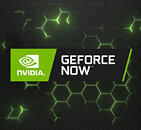
Steam Deck & Nintendo Switch Dominate Among Gamers Who Use Handhelds
TechPowerUp's team conducted research to find out how the market for handheld consoles performs and where its users are mostly going. The large community poll of 22,649 PC gamers, asking a simple "Do you game on a handheld console?" paints a solid picture of the customer base that a handheld console maker can expect. The majority, at 65.3% of the polled gamers, have chosen the option "No," indicating that two-thirds of PC gamers spend time on their main desktop or notebook PCs without using an additional handheld console. Among the 34.7% of respondents (7,852 votes) who game on the go, Valve's Steam Deck leads with 2,798 votes (35.6%), narrowly edging out Nintendo's Switch at 2,785 votes (35.5%).
ASUS's ROG Ally follows with 913 votes (11.6%), while "Other" devices, including Android emulators, retro‑focused units like the Analogue Pocket, and various mini‑PC handhelds, account for 810 votes (10.3%). Boutique Windows handhelds trail further behind, with the Lenovo Legion Go claiming 280 votes (3.6%) and the MSI Claw 266 votes (3.4%). Out of the entire fleet of these handhelds, only the Nintendo Switch is a real console. Others are mini portable PCs, which can serve functionality far beyond those of a console. Gamers are fond of the added functionality, which is why the Steam Deck, running Linux and Windows-based handhelds from ASUS, MSI, Lenovo, and others, are so popular.
ASUS's ROG Ally follows with 913 votes (11.6%), while "Other" devices, including Android emulators, retro‑focused units like the Analogue Pocket, and various mini‑PC handhelds, account for 810 votes (10.3%). Boutique Windows handhelds trail further behind, with the Lenovo Legion Go claiming 280 votes (3.6%) and the MSI Claw 266 votes (3.4%). Out of the entire fleet of these handhelds, only the Nintendo Switch is a real console. Others are mini portable PCs, which can serve functionality far beyond those of a console. Gamers are fond of the added functionality, which is why the Steam Deck, running Linux and Windows-based handhelds from ASUS, MSI, Lenovo, and others, are so popular.






























































